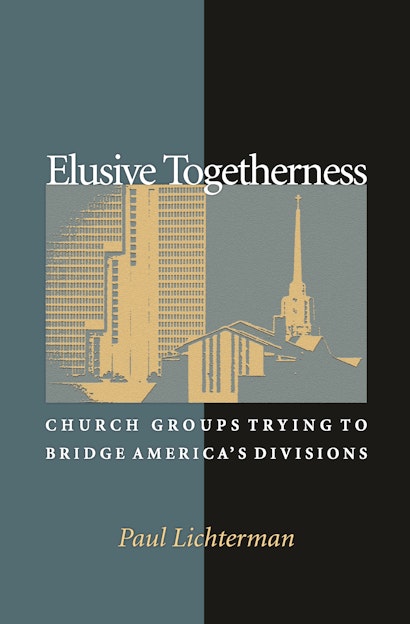Elusive Togetherness: Church Groups Trying to Bridge America's Divisions


Paperback
- Price:
- $44.00/£35.00
- ISBN:
- Published:
- Jul 25, 2005
- Copyright:
- 2005
- Pages:
- 344
- Size:
- 6 x 9.25 in.
- 4 tables.
- Main_subject:
- Sociology
ebook
Many scholars and citizens alike have counted on civic groups to create broad ties that bind society. Some hope that faith-based civic groups will spread their reach as government retreats. Yet few studies ask how, if at all, civic groups reach out to their wider community. Can religious groups—long central in civic America—create broad, empowering social ties in an unequal, diverse society?
Over three years, Paul Lichterman studied nine liberal and conservative Protestant-based volunteering and advocacy projects in a mid-sized American city. He listened as these groups tried to create bridges with other community groups, social service agencies, and low-income people, just as the 1996 welfare reforms were taking effect. Counter to long-standing arguments, Lichterman discovered that powerful customs of interaction inside the groups often stunted external ties and even shaped religion’s impact on the groups. Comparing groups, he found that successful bridges outward depend on group customs which invite reflective, critical discussion about a group’s place amid surrounding groups and institutions.
Combining insights from Alexis de Tocqueville, John Dewey, and Jane Addams with contemporary sociology, Elusive Togetherness addresses enduring questions about civic and religious life that elude the popular “social capital” concept. To create broad civic relationships, groups need more than the right religious values, political beliefs, or resources. They must learn new ways of being groups.
Awards and Recognition
- Winner of the 2006 Distinguished Book Award, Society for the Scientific Study of Religion
- Winner of the 2006 Distinguished Scholarly Book Award, Pacific Sociological Association
- Honorable Mention for the 2006 Book Award, Section on Sociology of Culture, American Sociological Association